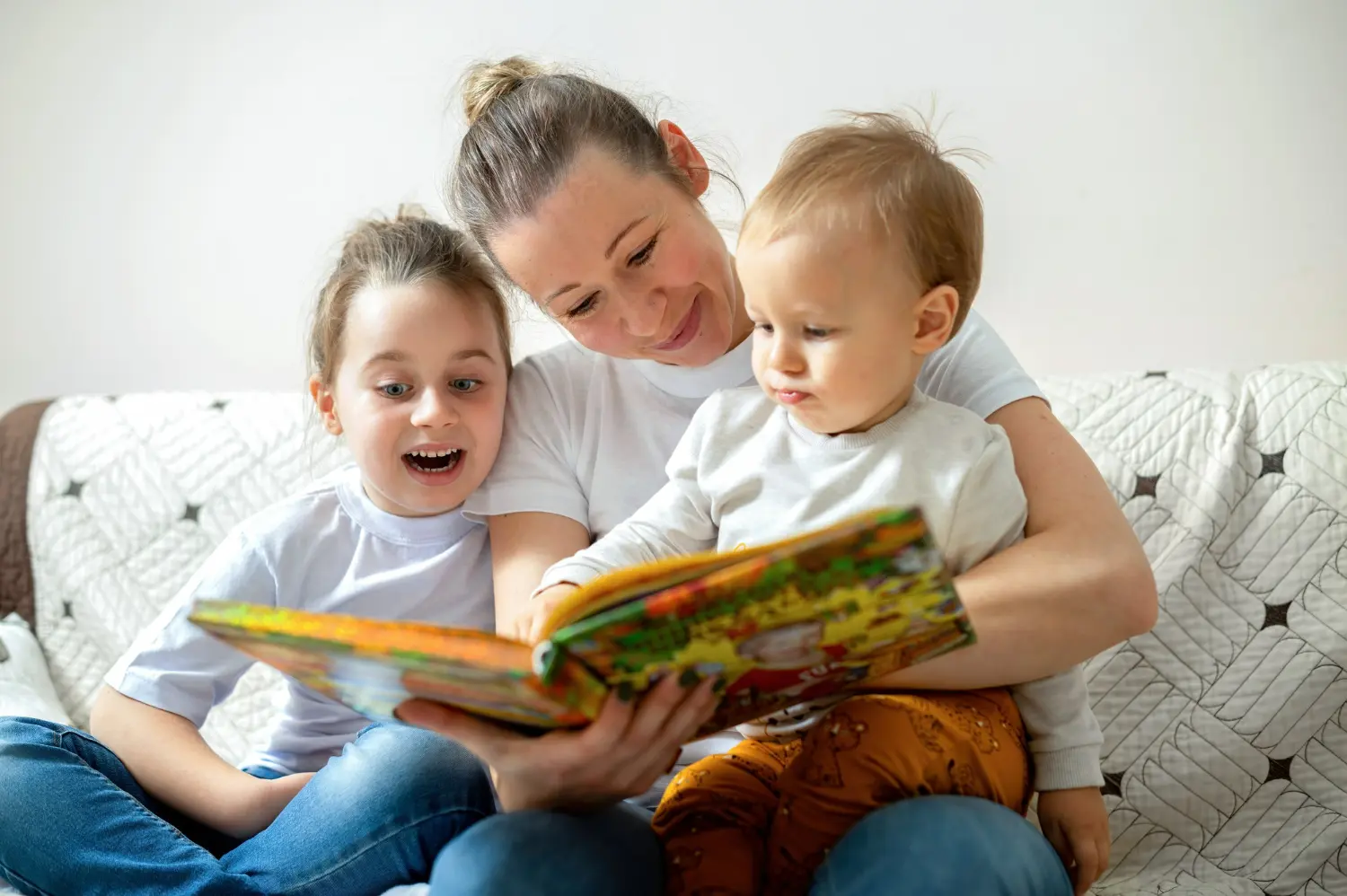
As a parent, you might already know how important it is to support your toddler’s speech and language development. The early years are critical for building communication skills, and the great news is that you don’t need fancy toys or a classroom setting to help your child thrive! With some creativity, everyday activities can turn into fun, language-rich opportunities. Here are five simple, engaging activities that will encourage your toddler’s language development while keeping them entertained:
Singing is a fantastic way to help toddlers develop both vocabulary and rhythm. Rhyming songs or ones with repetitive phrases (think "Twinkle, Twinkle Little Star" or "Wheels on the Bus") are particularly effective because they make it easier for toddlers to pick up new words and understand sentence structure. The repetitive nature of the songs helps your toddler anticipate and eventually mimic the words and phrases.
Tip: Add some simple hand motions or actions to go with the song (e.g., clapping hands, waving, or moving arms like wheels) to help your toddler connect meaning with words.
This classic game is more than just a fun activity – it’s an excellent tool for language development! By playing “Simon Says,” you encourage your toddler to listen closely, follow directions, and learn new action verbs. For example, “Simon says touch your toes” or “Simon says jump up and down.” The variety of actions can help expand your toddler’s vocabulary and reinforce basic body parts and actions.
Tip: Start with easy instructions and gradually increase the complexity of your commands as your child gets better at following them.
Interactive books, especially those with flaps, textures, or buttons that make sounds, can be a great way to encourage both language and listening skills. Toddlers often love engaging with books in an interactive way, and the more you read together, the more words they’ll be exposed to. Encourage your toddler to repeat words after you or point to pictures and name objects in the book.
Tip: Ask questions like, “What do you see on this page?” or “Can you point to the dog?” This will encourage your child to think critically about the story and practice their speaking skills.
Take a walk outside and make it a mini adventure! As you stroll, talk about the things you see – trees, animals, flowers, cars, or even clouds. This gives your toddler an opportunity to hear new vocabulary in context while also learning about their surroundings. Encourage your child to express what they see or ask questions about the things around them.
Tip: Bring along a small bag and collect interesting items like leaves, pebbles, or flowers. Then, once you're home, you can sit down together and talk about the things you found, reinforcing the words associated with each object.
Toddlers are naturally inclined to use their imagination, and pretend play is a great way to enhance both language and social skills. Whether it’s pretending to cook in a toy kitchen, hosting a tea party, or caring for stuffed animals, pretend play scenarios offer rich opportunities for practicing language. By acting out different roles and making up stories, toddlers can experiment with new words, phrases, and even social interactions.
Tip: Get involved in the play! For example, pretend to be a customer at the toy store or a patient at the doctor’s office. Use different voices, ask questions, and encourage your toddler to take on different roles in the story.
Incorporating these fun activities into your day does more than just keep your toddler entertained – they directly support the development of important speech and language skills. By singing songs, reading together, and engaging in pretend play, you’re helping your child expand their vocabulary, improve listening and comprehension skills, and practice speaking in real-life contexts.
These activities also foster communication skills in a relaxed, enjoyable way, making it easier for your toddler to feel confident and comfortable using language. Plus, the more you interact with your child during these activities, the stronger your bond will become, creating a positive, encouraging environment for growth.
